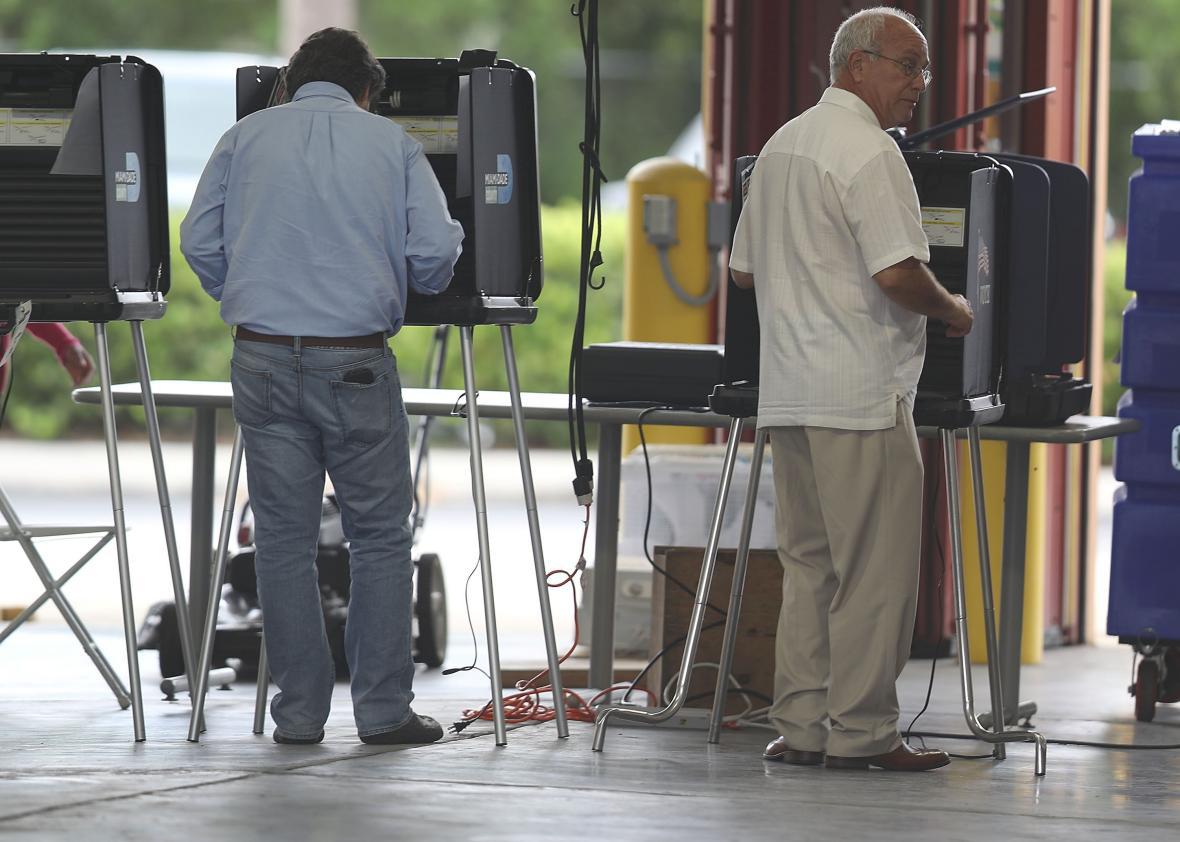Score one for democracy! On Wednesday, the U.S. Court of Appeals for the 1st Circuit invalidated New Hampshire’s ballot selfie ban, holding that the prohibition on photographing and publicizing one’s ballot violates the First Amendment. Two federal judges have already ruled that ballot selfie bans, which at least 25 states have adopted, violate constitutionally protected freedom of expression. The 1st Circuit’s ruling marks the first time a federal appeals court had ruled on the matter, and the opinion is a resounding victory for both free speech and democracy.
New Hampshire purported to adopt its ballot selfie ban in order to prevent voter fraud and coercion. The sweeping law forbade any citizen from taking “a digital image or photograph of his or her marked ballot and distributing or sharing the image via social media or by any other means.” But the ban did not stop thousands of voters from posting a picture of their ballots on social media, often accompanied with political commentary. So New Hampshire decided to target three voters who posted ballot photographs to Facebook or Twitter, along with text praising or criticizing certain candidates. The voters sued, arguing that the law infringed on their First Amendment rights.
In a unanimous opinion, the 1st Circuit vigorously agreed that the New Hampshire law could not withstand constitutional scrutiny. The court chose to accept that the state really had enacted the law to combat voter fraud, not stifle expression. But the court still found that the statute restricted “core political speech,” and therefore must be “narrowly tailored to serve a significant governmental interest.”
From there, the court easily concluded that the ban was not at all narrowly tailored: There was, instead, “a substantial mismatch between New Hampshire’s objectives and the ballot-selfie prohibition.” The state restricted the rights of every single voter in order to halt the hypothetical wrongdoing of just a few malefactors—without even demonstrating that existing laws against voter fraud were insufficient to address New Hampshire’s concerns. Moreover, the court questioned whether the state’s “abstract interests” in preventing voter fraud could really be “compelling” when the state failed to put forth a single instance of voter coercion in New Hampshire. (The opinion calls such alleged fraud “an unsubstantiated and hypothetical danger.”) Weighing the extreme breadth and chilling effect of the law against its rather meager justifications, the court held that the First Amendment barred such a ban.
“The restrictions on speech” imposed by New Hampshire’s law, the court concluded, “are antithetical to democratic values.”
What’s most remarkable about the 1st Circuit’s decision is that the judges obviously get it: They understand that, for millennials especially, ballot selfies have become perhaps the primary mode of political expression on Election Day. They amplify voter excitement and might even increase turnout. They are an exercise in two fundamental rights at once—free speech and voting—and help to promote democracy. By providing them with First Amendment protection on Wednesday, the 1st Circuit got it exactly right. Modern technology may have created a raft of truly difficult free speech quandaries. But ballot selfies are not one of them.
